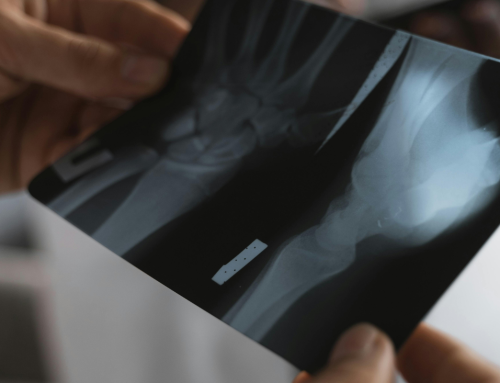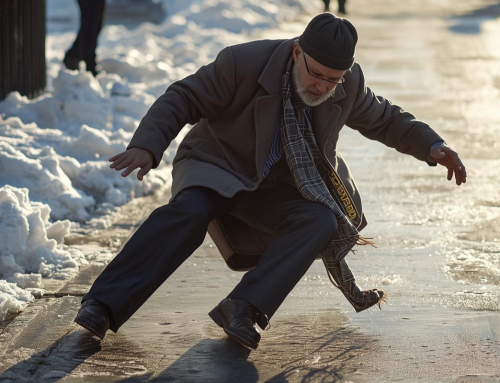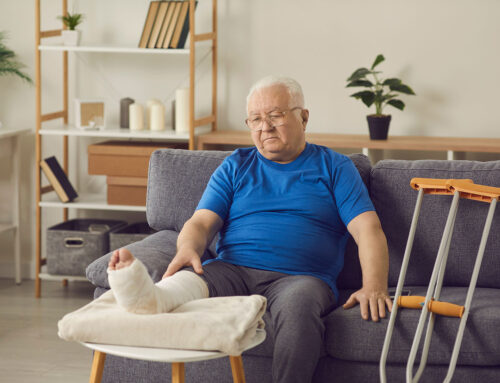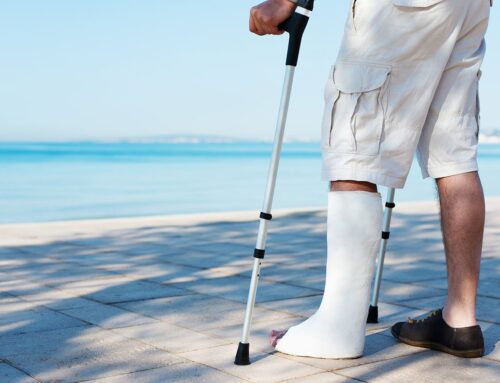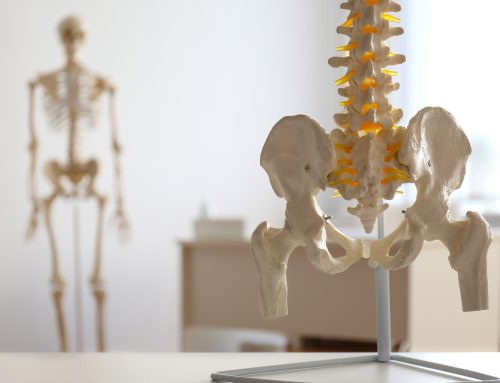Losing weight is often associated with healthy living. However, that’s not always the case. Rapid weight loss could be detrimental to your bone density, especially in postmenopausal women.
Losing too much bone mass can bring on osteoporosis and lead to a higher risk of fractures. The term “porous bone” relates to the word “osteoporosis,” which signifies “weak bone.” As a result, bones become brittle and can break with a simple fall or, in extreme cases, a simple hip bump against your living room end table. If you’re concerned that you’ve suffered from the loss of bone mass, try a bone density test, or your BMI (body mass index) can be a great indicator of your bone mineral density with a specialized scan.

According to the National Institutes of Health, the reduction in bone mineral density following weight loss is caused by decreased mechanical stress of the bones during movement and increased calcium loss. Rapid weight loss methods with low-energy diet programs of less than 800 calories per day have been linked to the cause of lasting bone density loss in postmenopausal women.
This doesn’t mean you can’t lose weight once you hit a certain age – it just means you’ll have to be mindful of the way you do it. Read on for tips on losing weight and reducing your risk of bone density loss that could lead to osteoporosis.
Science of osteoporosis when losing weight due to bone mass/size loss.
In a study conducted by the Brigham and Women’s Hospital in Boston, they tested two diets on four groups of people. 236 participants ranging from age 30 to 70 were noted as overweight or obese. They had to follow a recommended low-calorie diet consisting of high-protein or average protein. Each participant had a bone density test that measured both their hip and spine after six months and two years from the beginning of the study. Surprisingly, the men who lost weight gained bone density in the spine, with no change in their hip bone density test.
However, women weren’t as lucky. It was reported that premenopausal women had lost bone density in the hip, while post-menopausal women were at risk for both hip and spine bone density loss.
The good news for postmenopausal women and those seeking to lose weight without losing bone mass is that you can combat this with diet and exercise.
Tips for eating better while losing weight to combat osteoporosis.
The best diet recommendation for improving bone density to combat osteoporosis is increasing your calcium intake with mindful caloric restriction. While losing weight can help you thrive with more energy, looking for a quick fix can do more damage than good. You’ll want to avoid:
- Quick diet fixes: many of the diet trends promote restricting certain food groups for a prolonged period of time. They may not optimize for a calcium dense diet, which is beneficial for your bone health, but rather focus on rapid weight loss.
- Skipping breakfast: some diets promote intermittent fasting or skipping breakfast to cut calories. It’s recommended to start your day with a calcium-rich option or supplements to increase bone density.
- Dipping below 800 calories per day: losing weight is a long-term process that has dangerous consequences when done improperly. Women should consume at least 1,200 calories per day, while men have a little more wiggle room at 1,400. However, the calorie count isn’t nearly as important as where those calories come from. Focus on eating whole foods to promote optimal bone health.
Instead of zoning in on what you should restrict to lose weight, focus on a simple lifestyle adjustment you can maintain that includes:
- 1,000 mg of calcium if you’re under 50 or 1,200 mg if you’re over 50.
- Fresh fruit and dark leafy vegetables like kale or broccoli. These foods are packed full of essential nutrients, including calcium.
- Plenty of Vitamin D. You can get this by walking in the sun for 5-30 minutes or through beverages like soy milk or orange juice.
- Lean protein and dairy. They’re the best energy sources that help strengthen your bone density as you age and lose weight. However, if you’re following a dairy-free diet, we have a better recommendation to ensure good bone health.
Exercise tips while losing weight to combat osteoporosis.
Women can reduce their risk of osteoporosis, fractures, and loss of bone density through weight training exercises, walking, and callisthenics. All you need is 30 minutes per day and it doesn’t have to be a high-impact workout on your joints. This could include:
- Walking or a light jog.
- Weight-bearing exercises such as squats, push-ups, and weight lifting.
- Yoga and pilates.
Weight loss can have significant benefits on cardiovascular health and decrease the risk of diabetes in overweight individuals. It’s important not to disregard healthy habits due to a fear of reduced bone mass. Follow this article’s recommendations to protect your bones and lower your risk of fractures due to osteoporosis or low bone mass.
If you’ve suffered from a fracture due to loss of bone mass, Fracture Healing has a self-treatment device that can speed up the healing process. Contact us today to find out how a Melmak LIPUS device can help you repair your fracture and get back on the journey of better bones.
What calcium-rich foods do you recommend to others looking to strengthen their bone density? Do you have a favourite exercise that promotes bone health? Share your thoughts in the comments below for other readers to try!

